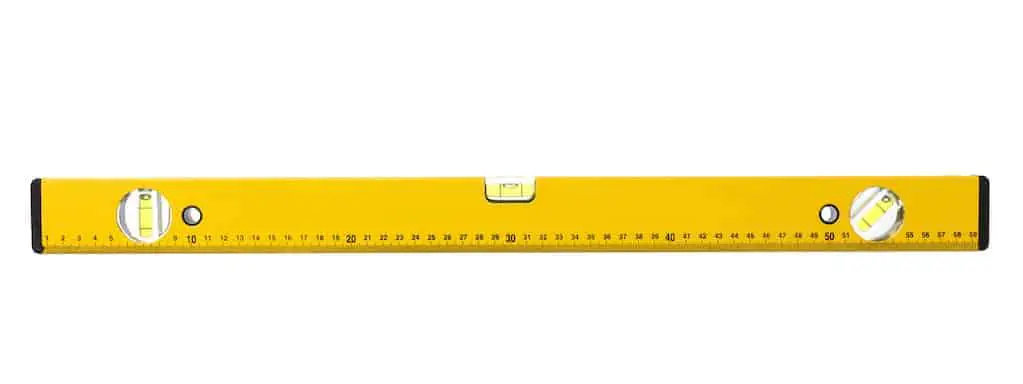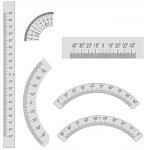A Water Level Measures Level Water! Is There Anything Which Can be Used to Detect Curved Water?
- Thread starter MerSee
- Start date
-
Christian Chat is a moderated online Christian community allowing Christians around the world to fellowship with each other in real time chat via webcam, voice, and text, with the Christian Chat app. You can also start or participate in a Bible-based discussion here in the Christian Chat Forums, where members can also share with each other their own videos, pictures, or favorite Christian music.
If you are a Christian and need encouragement and fellowship, we're here for you! If you are not a Christian but interested in knowing more about Jesus our Lord, you're also welcome! Want to know what the Bible says, and how you can apply it to your life? Join us!
To make new Christian friends now around the world, click here to join Christian Chat.
Yes we do. And most scientists can't tell you what is.
Well, first of all, I think that is a false statement. Perhaps we should call it the law of universal gravitation.
Then again, scientists cannot fully accurately explain anything.
Yes we do. And most scientists can't tell you what is.
And let's talk about that atmosphere. If space is real and what they tell us it is, its a vacuum.
Here's the problem with that.
Its the 2nd law of thermodynamics.
The laws of physics, specifically the second law of Thermodynamics, states that the vacuum of space should spontaneously equalize the pressure of earth’s atmosphere and increase entropy. This means that our atmosphere should be sucked into the vacuum of space if space is real. But its not. When gravity is used to explain this it fails. Scientists claim that gravity pulls the air molecules back to Earth. This seems reasonable, until your four year old let's go of his balloon.
And let's talk about that atmosphere. If space is real and what they tell us it is, its a vacuum.
Here's the problem with that.
Its the 2nd law of thermodynamics.
The laws of physics, specifically the second law of Thermodynamics, states that the vacuum of space should spontaneously equalize the pressure of earth’s atmosphere and increase entropy. This means that our atmosphere should be sucked into the vacuum of space if space is real. But its not. When gravity is used to explain this it fails. Scientists claim that gravity pulls the air molecules back to Earth. This seems reasonable, until your four year old let's go of his balloon.
Or, instead of complaining that (your understanding of) physics doesn't explain real-world phenomena, how about offering testable alternative hypotheses.
equilibrium of a fluid marked by a horizontal surface of even altitude
Mind you, given that altitude is the vertical distance from mean sea level, you're basically employing circular reasoning.
And yet, you nor anyone else has actually addressed the OP's question. I personally would have phrased it differently, but the point has been made. Standing water is always level.
Yes we do. And most scientists can't tell you what is.
And let's talk about that atmosphere. If space is real and what they tell us it is, its a vacuum.
Here's the problem with that.
Its the 2nd law of thermodynamics.
The laws of physics, specifically the second law of Thermodynamics, states that the vacuum of space should spontaneously equalize the pressure of earth’s atmosphere and increase entropy. This means that our atmosphere should be sucked into the vacuum of space if space is real. But its not. When gravity is used to explain this it fails. Scientists claim that gravity pulls the air molecules back to Earth. This seems reasonable, until your four year old let's go of his balloon.
And let's talk about that atmosphere. If space is real and what they tell us it is, its a vacuum.
Here's the problem with that.
Its the 2nd law of thermodynamics.
The laws of physics, specifically the second law of Thermodynamics, states that the vacuum of space should spontaneously equalize the pressure of earth’s atmosphere and increase entropy. This means that our atmosphere should be sucked into the vacuum of space if space is real. But its not. When gravity is used to explain this it fails. Scientists claim that gravity pulls the air molecules back to Earth. This seems reasonable, until your four year old let's go of his balloon.
The effect of gravity reduces as the height of the air increases. So the air is less dense. Pilots know this. So do aircraft designers. Air produces friction, so supersonic aircraft tend to fly at extreme heights.
This is why reentry is a problem for space craft. They need to fly at extreme velocity to escape earth's gravity. When they come back at the same speed (of course, there is nothing in space to slow them down), they are super heated by the friction of the air. Hence satellites will burn up in the atmos-sphere.
Everything I've said is common knowledge. Unfortunately, there is not nearly enough common sense to go with knowledge.
-
1
- Show all
Do you mean to say, most scientists can't tell you IT what is, it being gravity?
Well, first of all, I think that is a false statement. Perhaps we should call it the law of universal gravitation.
Then again, scientists cannot fully accurately explain anything.
Well, first of all, I think that is a false statement. Perhaps we should call it the law of universal gravitation.
Then again, scientists cannot fully accurately explain anything.
No, it is not. It depends on the scale that you are measuring. Have you ever seen the tide? Where does the water go at low tide? Even a small body of water is subject to tidal influence. It's just that we cannot detect it with our own eyes.
It's called "atmos-sphere", not atmosflat. Gravity is real. Jump off a cliff if you are not sure. If a balloon is filled with helium, it will be lighter than air so it will rise because it has buoyancy. Ships float and planes fly because there are principles that overcome gravity. Use a parachute as you jump off a cliff and you will be ok.
The effect of gravity reduces as the height of the air increases. So the air is less dense. Pilots know this. So do aircraft designers. Air produces friction, so supersonic aircraft tend to fly at extreme heights.
This is why reentry is a problem for space craft. They need to fly at extreme velocity to escape earth's gravity. When they come back at the same speed (of course, there is nothing in space to slow them down), they are super heated by the friction of the air. Hence satellites will burn up in the atmos-sphere.
Everything I've said is common knowledge. Unfortunately, there is not nearly enough common sense to go with knowledge.
It's called "atmos-sphere", not atmosflat. Gravity is real. Jump off a cliff if you are not sure. If a balloon is filled with helium, it will be lighter than air so it will rise because it has buoyancy. Ships float and planes fly because there are principles that overcome gravity. Use a parachute as you jump off a cliff and you will be ok.
The effect of gravity reduces as the height of the air increases. So the air is less dense. Pilots know this. So do aircraft designers. Air produces friction, so supersonic aircraft tend to fly at extreme heights.
This is why reentry is a problem for space craft. They need to fly at extreme velocity to escape earth's gravity. When they come back at the same speed (of course, there is nothing in space to slow them down), they are super heated by the friction of the air. Hence satellites will burn up in the atmos-sphere.
Everything I've said is common knowledge. Unfortunately, there is not nearly enough common sense to go with knowledge.
-
1
- Show all
May the farce be with you. Live long and prosper. To infinity and beyond.
-
1
- Show all
You can use your eyes. And anyone can do it, with a relatively small body of water.
We have Flathead lake in Montana. 15 miles across. Some places are 3,4,5 miles across. Get a good pair of binoculars.
Now stand on the shore and glass across the lake. Pick out anything that is visible, something right at water level from the other side. We have lots of trees, so we use 12 to 16 inch round logs that are on the shore line.
Standing, get a good look and good location on your target. Now lay down and see if you can see it. Curvature proved.
Water does not "find level." Water is always "looking for the lowest point." That is why you will lose sight, the curvature of the earth.
We have Flathead lake in Montana. 15 miles across. Some places are 3,4,5 miles across. Get a good pair of binoculars.
Now stand on the shore and glass across the lake. Pick out anything that is visible, something right at water level from the other side. We have lots of trees, so we use 12 to 16 inch round logs that are on the shore line.
Standing, get a good look and good location on your target. Now lay down and see if you can see it. Curvature proved.
Water does not "find level." Water is always "looking for the lowest point." That is why you will lose sight, the curvature of the earth.
-
1
- Show all
You can use your eyes. And anyone can do it, with a relatively small body of water.
We have Flathead lake in Montana. 15 miles across. Some places are 3,4,5 miles across. Get a good pair of binoculars.
Now stand on the shore and glass across the lake. Pick out anything that is visible, something right at water level from the other side. We have lots of trees, so we use 12 to 16 inch round logs that are on the shore line.
Standing, get a good look and good location on your target. Now lay down and see if you can see it. Curvature proved.
Water does not "find level." Water is always "looking for the lowest point." That is why you will lose sight, the curvature of the earth.
We have Flathead lake in Montana. 15 miles across. Some places are 3,4,5 miles across. Get a good pair of binoculars.
Now stand on the shore and glass across the lake. Pick out anything that is visible, something right at water level from the other side. We have lots of trees, so we use 12 to 16 inch round logs that are on the shore line.
Standing, get a good look and good location on your target. Now lay down and see if you can see it. Curvature proved.
Water does not "find level." Water is always "looking for the lowest point." That is why you will lose sight, the curvature of the earth.
-
1
- Show all


